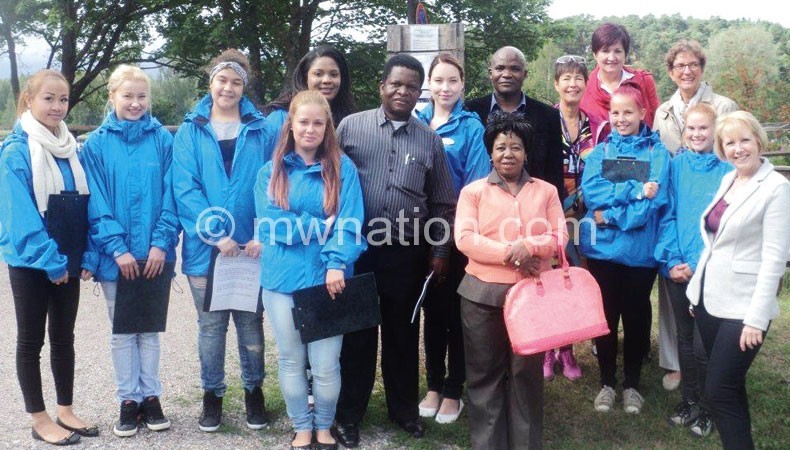Malawi cherishes Iveta 2014 conference benefits

The Technical Entrepreneurial and Vocational Education and Training Authority (Teveta) Malawi has touted the 2014 International Vocation and Education and Training Association (Iveta) conference, saying it has exposed the country in numerous ways.
Among others, Teveta says the annual indaba helped them to engage the United Nations Education Scientific and Cultural Organisation (Unesco) which has pledged to continue helping Malawi in enhancing skills development in the vocational education and training sector.
The 2014 Iveta conference in Helsinki, Finland and St. Petersburg, Russia from August 20 to 25, 2014, brought together more than 300 vocation and education training experts from different parts of the world themed ‘Internationalisation in Technical, Vocational Education and Training (Tvet)’.
“The Malawi delegation had a discussion with the Unesco chief of vocational education and training, Borhene Chakroun, who assured us that his organisation will continue supporting various capacity building projects in the vocational education and training sector in Malawi,” said Teveta senior public relations officer Lewis Msasa, who was part of the delegation.
He was asked on Tuesday to summarise the outcome of the 2014 Iveta conference and what Malawi stands to benefit in the long run.
Msasa, who also presented a paper at the conference entitled ‘Assessing the role of public relations in the internationalisation of Tvet with reference to the sub-Saharan Region,’ said Unesco was pleased to learn that Malawi has decided to build community colleges in the country.
He said Unesco has ensured access to vocational educational and training to the majority of Malawians.
Currently, Unesco in Malawi is supporting two projects, namely, The Better Education for All Rise (Bear) and the Capacity Development in Education for All (Capefa), apart from being responsible in funding the Tevet policy review.
Msasa said one common feature noted at the conference was that globally, Tvet is regarded with low status despite its potential to provide a solution to unemployment.
“But it was also noted that in the European Union, countries have made tremendous advances in Tvet when compared to sub-Saharan Africa,” he said.
According to the International Labour Organisation (ILO), about 200 million new jobs are needed over the next five years to keep pace with the growing working age population in emerging and developing countries such as Malawi.
As such, Msasa said widening the base of skilled people through Tvet ought to be the solution.
He said during the conference, it was noted that Teveta Malawi and Teveta Zambia are probably the only authorities in the sub-Saharan Africa that have incorporated entrepreneurship in Tvet to increase chances of graduates going into self-employment.
The phrase ‘Technical and Vocational Education and Training’ (Tvet) was adopted to reflect the combined process of education and training and to recognise that employment be the common objective of its immediate goal.
Msasa said it transpired during the conference that although Tvet system is being recognised as instrumental for socio-economic development in most countries, studies indicate that the system is failing to match with the skills, attitudes and knowledge demands from the market, partly due to rapid technological developments, globalisation as well as rapid transformation of occupations.
“As such, the public harbours negative attitudes on Tvet in the wake of its failure to provide a panacea for unemployment. Within the same armpits, the media has also embraced these negative attitudes, hence poor coverage and misrepresentation of information on Tvet,” he said.
At the end of the Iveta conference in St Petersburg, Russia, Msasa said delegates were urged to strengthen collaboration and sharing of experience among them.
Iveta president Professor Olga Oleynikova said Tvet is an important contributor to economic growth.
Iveta, founded in 1984, is an organisation and network of vocational educators, vocational skills training organisations, business and industrial firms and other individuals and groups interested or involved in vocational education and training worldwide.





